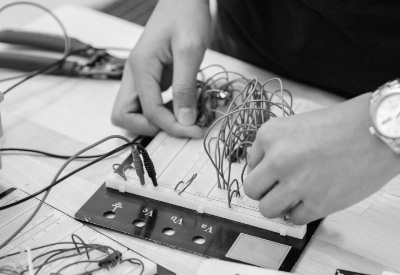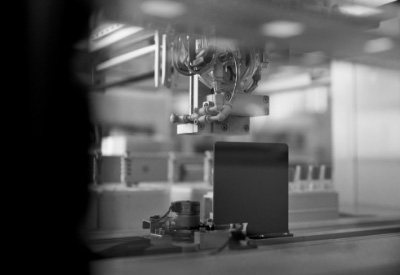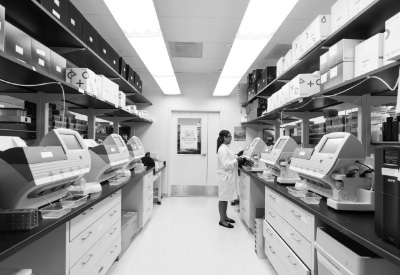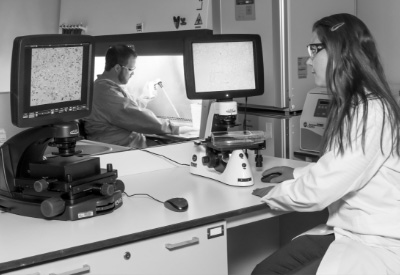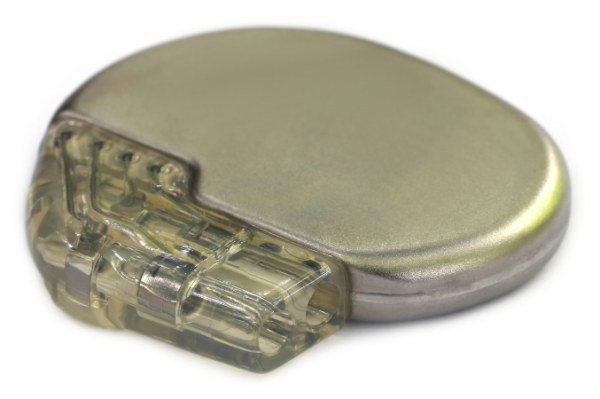
While many impactful technological advancements have been made in the medical field in recent years, there remains a pressing need for further innovation in safely and efficiently powering medical devices. City Labs has begun to explore the potential of our patented NanoTritium™ battery technology to revolutionize medical devices and implants to improve patient care.
The betavoltaic technology behind our tritium-powered nuclear batteries offers unique benefits for replacing traditional medical device batteries and the potential to address long-standing issues in the medical field.
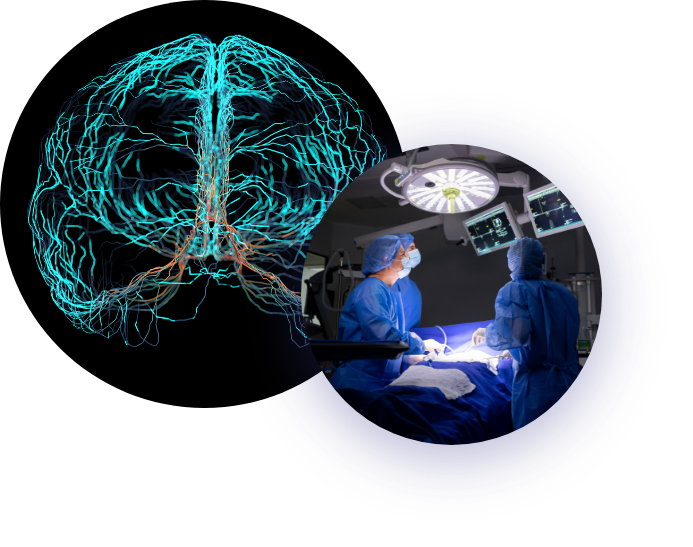
The Challenge: Powering Medical Devices Safely and Efficiently
Powering medical devices and implants is no small feat. Most modern medical devices and implants rely on conventional power sources, such as lithium-ion batteries. Medical device battery standards limit the use of such batteries in several cases due to notable limitations regarding size, lifespan, and biocompatibility.
Medical implants like cardiac pacemakers are one notable medical application that require long-lasting and reliable power sources. These devices must be safely integrated into the human body without causing harm or triggering adverse reactions, necessitating extremely high battery standards. These implants are powered by batteries that utilize volatile chemical reactions that pose safety risks and lose power output over time. As such, these devices must be closely monitored over the patient’s lifetime and often require replacement.
Medical device battery requirements also pose significant size constraints on power sources, all amounting to an urgent need for medical power solutions that can be tailored to specific applications while remaining compact, efficient, and safe.
NanoTritium™ Batteries as a Novel Healthcare Solution
City Labs has embarked on an ambitious journey to harness the potential of our patented nuclear battery technology to power microelectronics for medical devices and implants. These novel batteries convert the energy released by the decay of the radioactive isotope tritium into usable electrical power.
Tritium is a weak radioactive isotope of hydrogen, emitting low-energy beta particles that can be easily and effectively shielded with the addition of thin metal plates on each battery, making them safe for human use. City Labs’ pioneering work in this area has opened a world of possibilities for the development of medical batteries.

Advantages of Tritium-Powered Batteries for the Medical Field
City Labs’ NanoTritium™ batteries offer groundbreaking potential for transforming medical devices and implants, significantly enhancing patient care, overall quality of life, and long-term treatment outcomes. As the biotech field continues to expand rapidly, there is a growing demand for versatile and reliable power sources.

Biocompatibility
Tritium is well-suited for medical implants since it can be safely implanted in the body without causing radiation harm. The low-energy beta particles emitted by tritium have limited penetration and can be contained within the battery's shielding, ensuring the patient's safety.

Longevity
Tritium has a half-life of 12.3 years, which means that tritium-powered batteries can provide a stable power output for extended periods of time. City Labs’ batteries are guaranteed to last for 20+ years, eliminating the need for frequent surgical procedures to replace medical implant batteries due to degrading power supplies.

Compact Design
NanoTritium™ batteries can be customized for any application and are highly compact, making them ideal for use in small medical devices and implants. Creating custom shapes, sizes, and power output allows for seamless integration into various medical applications.
Potential Devices and Implants Powered by City Labs' NanoTritium™ Batteries
Cardiac Pacemakers
Cardiac pacemakers are an ideal candidate for NanoTritium™ batteries. These life-saving devices require reliable and robust power sources that can operate continuously for many years without needing replacement or recharging.
City Labs, in collaboration with global medical device company Biotronik, has already initiated research on developing the next generation of leadless pacemakers. The end goal is to create safe and efficient pacemakers that can last for 20+ years.
Neurostimulators
Implanted neurostimulators can treat conditions including Parkinson’s disease, epilepsy, and chronic pain. NanoTritium™ batteries would provide a constant and stable power supply to neurostimulators, helping to enhance the effectiveness of these devices in managing patient symptoms.
Artificial Organs
The development of artificial organs like artificial hearts or kidneys has great potential to revolutionize transplantation medicine and eliminate healthcare issues arising from organ scarcity. Some artificial organs are equipped with microelectronic devices, such as sensors, that enable them to perform their intended functions. These electronics might monitor vital parameters, adjust organ function based on real-time data, or facilitate communication with external devices or medical professionals.
For example, an artificial heart might incorporate sensors to detect changes in blood flow. NanoTritium™ batteries would offer a reliable power source for these life-sustaining devices, making them a viable option for patients awaiting organ transplants.
Prosthetic Limbs
Some prosthetic limbs rely on microelectronic devices to help mimic natural movements. NanoTritium™ batteries could help power these electronics, providing users with a reliable and long-term power source for enhanced mobility and functionality.
Bioimplants
Bioimplants, such as glucose sensors or drug delivery systems, rely on battery power for normal operation. The functions performed by these devices are crucial for patient survival and would greatly benefit from NanoTritium™ batteries’ extended lifespan. With these batteries, safe and consistent performance can be ensured for decades without frequent interventions.
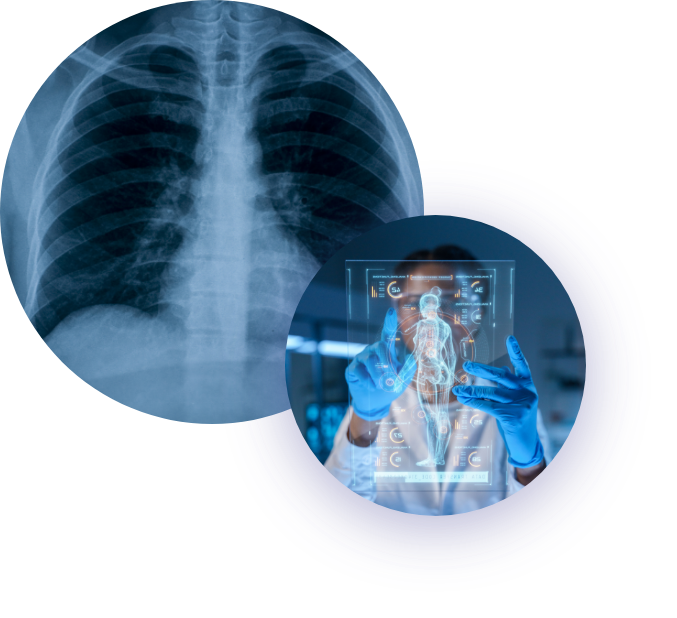
City Labs: Pioneering the Future of Medical Device Power
City Labs’ groundbreaking research and development of our patented NanoTritium™ batteries have placed us at the forefront of clean energy efforts for microelectronic applications. With our sights now set on addressing the challenges of providing safe, effective, and long-term power solutions for medical devices, City Labs is poised to become a key player in the medical device battery manufacturing field.
City Labs has already partnered with multiple industry leaders in energy and technology and is actively seeking new partners who share our vision and passion for a cleaner, more sustainable future powered by clean energy. Our mission is to become a key player in developing advanced microelectronics for medical devices and implants. Our focus on creating power sources that ensure safety and efficiency while enhancing device performance and extending product lifespans has the potential to make meaningful and substantial improvements to patient outcomes and overall healthcare quality.
While our vision is large, our journey of transforming healthcare has only just begun. If you are interested in joining us on this transformative journey to redefine healthcare for the future, we encourage you to contact us today.
The Nuclear Battery Company With a Vision
Ready to power your next innovation or learn more about our technology?
Contact Us Today